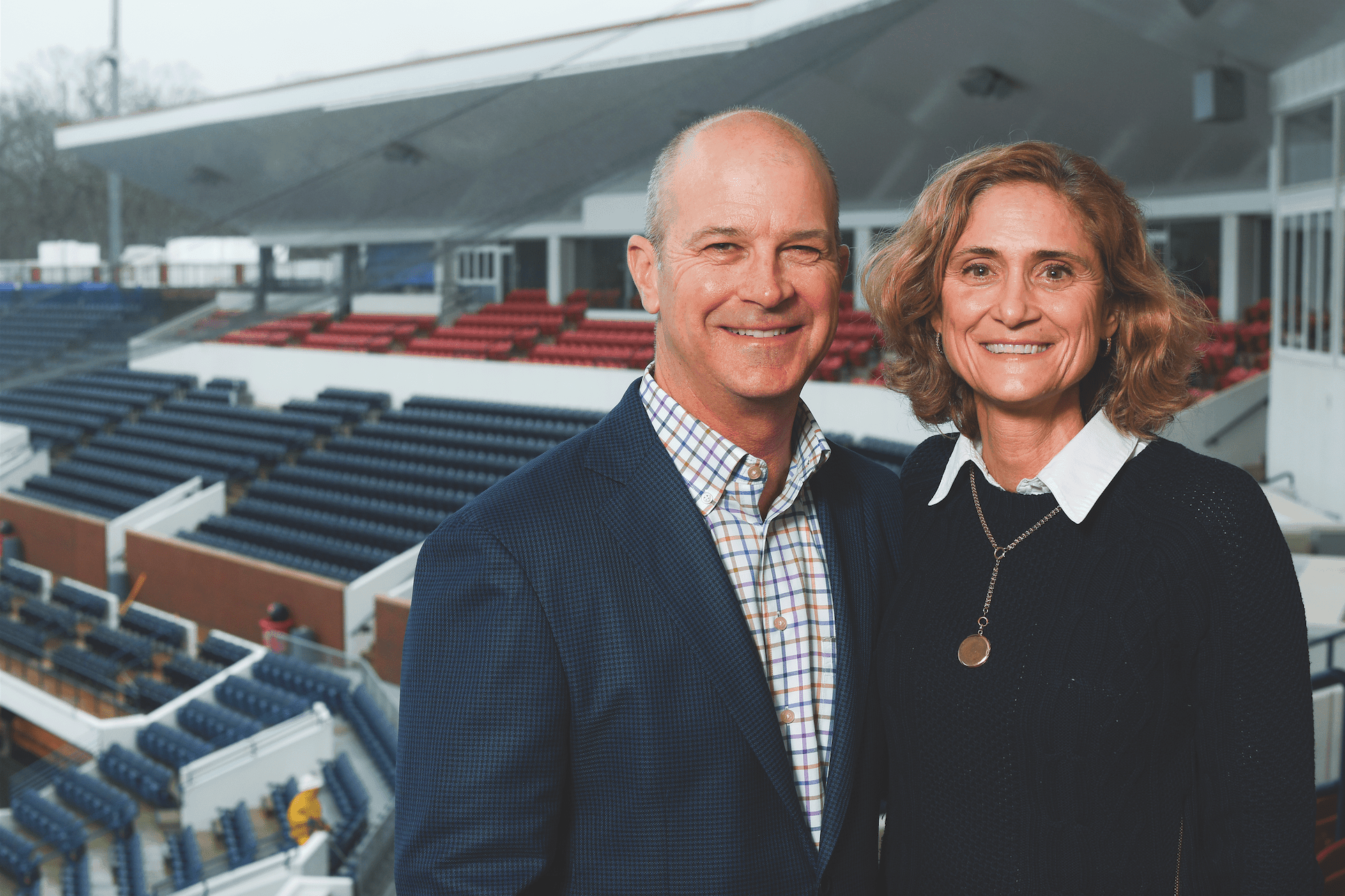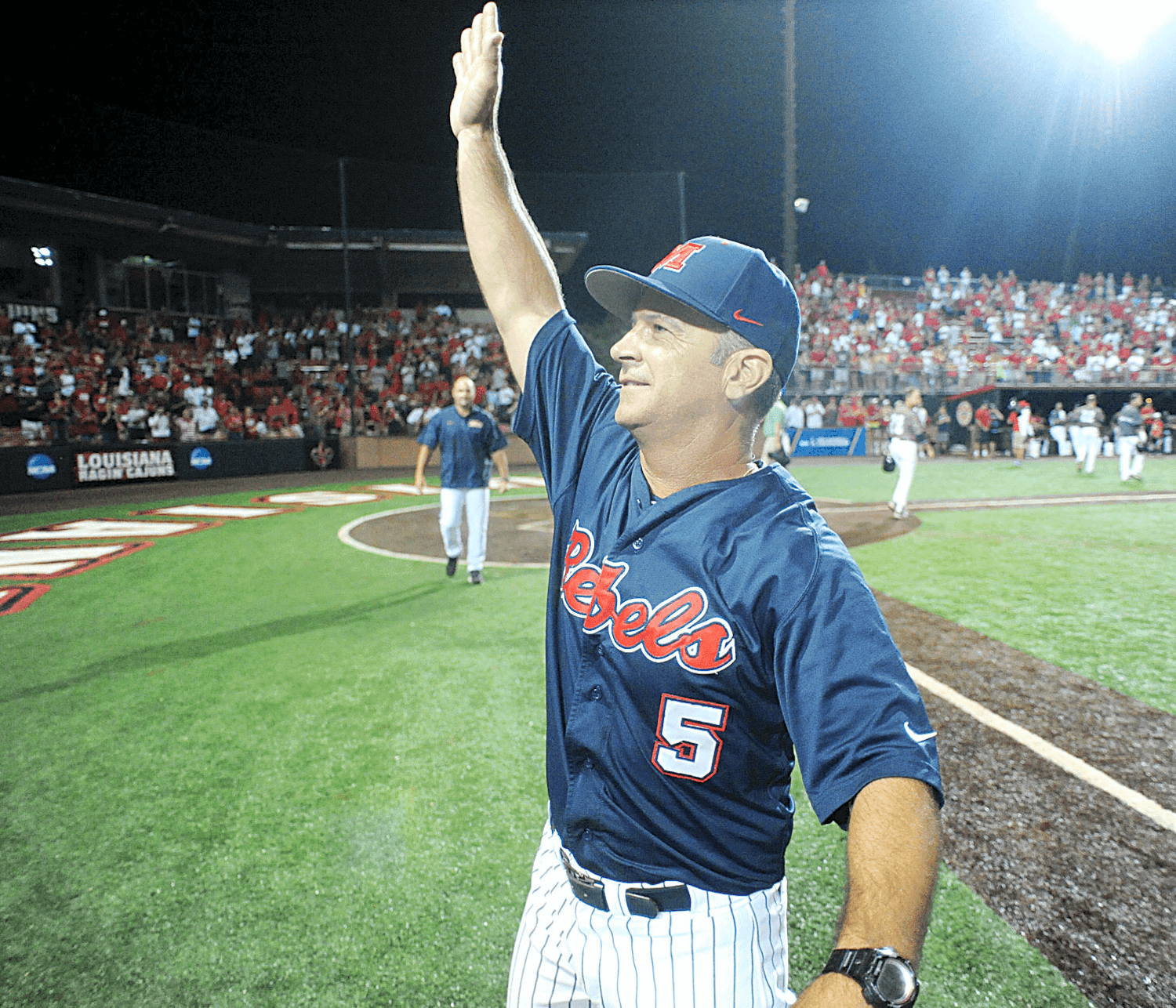
THIS IS HOME
Biancos find peace amid Ole Miss baseball's revivaldavis.potter@oxfordeagle.com
Mike Bianco was worried 18 years ago.
Sitting in a Holiday Inn in Monroe, Louisiana just hours before his team took the field for its Southland Conference tournament game against Sam Houston State in May 2000, Bianco, then the head coach at McNeese State, confirmed what the team’s bus driver had brought to his attention by skimming a blurb in the USA Today: Ole Miss was looking for a new baseball coach.
There was excitement, too, and even some impatience.
Bianco, who had discussions with Ole Miss supporters about the job four years earlier before the Rebels hired Pat Harrison, reconnected with one of them, Ole Miss booster Tim Climer, in the hours leading up to McNeese State’s 6-5 loss to Sam Houston State that eliminated the Cowboys from the tournament. On the bus ride home, Bianco called then-Ole Miss athletic director John Shafer to express his interest in the position.
Once McNeese State’s season ended in the program’s third NCAA regional, Bianco, accompanied by his wife, Camie, made the trip to Oxford for a day-long interview before returning home to Lake Charles, Louisiana to wait. After talking to a few more candidates, Shafer called Bianco on June 6 to offer a job that Bianco quickly accepted. Shafer told Bianco to wear a red tie to his introductory press conference the next day.
“And I remember going into the closet and realizing I didn’t have a red tie,” Bianco recalled. “Who doesn’t have a red tie, right? The next morning, I woke up and went to the men’s clothing store there in Lake Charles and got a red tie.”
But his attire’s color scheme wasn’t the most pressing concern for Bianco as the reality of taking over a program that had toiled in mediocrity began to sink in.
Before coaching at McNeese State, Bianco had gotten plenty of SEC experience. He caught for SEC coaching legend Skip Bertman at LSU in the late 1980s before being a part of four College World Series teams and three national championships in five years as Bertman’s assistant. Bianco was used to a winning culture.
Meanwhile, Ole Miss was starving for success.
“Of course it was very intriguing because it was the Southeastern Conference and we’d known about it, but in all honesty — and I tell people this — there was another side of it where I was a little worried because what happens if you do get it?” Bianco said. “They’ve never really won. They’ve only been to the postseason twice in 25 years. … If you don’t have success, they don’t recycle coaches in baseball very often. If you come here and fail, then you might selling insurance or doing something else.”
Bianco hasn’t had to worry about that.
The Rebels have risen to national prominence under Bianco, who became the program’s all-time winningest coach in his first 13 seasons at the helm and is just one of nine coaches in NCAA history to win at least 600 games at an SEC school. The dean of SEC baseball coaches has led Ole Miss to 14 regionals, five Super Regional appearances and, in 2014, its most recent trip to the College World Series.

“It’s been a huge investment for the university and the fans alike when you talk about the facilities, when you talk about the fans and the season tickets. I get that,” Bianco said. “I get that we’re not what they used to be when they didn’t sell a lot of season tickets and there wasn’t a lot put into baseball and now there is. I understand the mathematics of it, but, fortunately, I feel — and I hope they feel — it’s been a good investment. It’s kind of been a win-win for everybody.”
Bianco’s longevity in Oxford has also given he and Camie, a former student athletic trainer at LSU who met Mike during his recruiting visit, a place to call home after quickly becoming entrenched in the community.
“I think right away you’re involved in the Ole Miss family immediately,” Camie said. “The Shafers were really great about that. We had wives’ luncheons and different things for me to be able to meet other coaches’ wives. That was great. And then functions (Mike) had to be at that we’d go to as a family. All of that was a great start for us. You came in and immediately you had a sense of family and people that you could meet and know.”
Mike and Camie are active members of St. John the Evangelist Catholic Church, where Camie is involved in youth ministry. The couple had three children — Michael, the oldest, Ben and Drew — when they moved to Oxford, but the family has since grown to include Sam and Catherine, who are still in the Oxford School District along with Drew, a senior at Oxford High who will follow in his father’s footsteps at LSU.
A former school teacher, Camie now volunteers her time trying to make a difference for children in the community, something she fittingly referred to as her “calling.”
“Once you’re a teacher, you have a heart for kids and that just never goes away,” Camie said. “I think that’s a big part of it. We have a lot of children ourselves, so we know a lot of kids. That’s been so rewarding over the years to get to know those kids. Children tend to give you a lot more than you ever give them. I learn so much more from them and experience so much more from them. They’re our future, so that’s important.”
Camie is also involved in Parent Teacher Organizations at Oxford’s high and middle schools as well as the high school’s weekly Blue Ribbon event that promotes awareness for bullying prevention. Her biggest time commitment is as a board member for Lovepacks, a non-profit organization that provides food to underprivileged students in the Oxford and Lafayette school districts on weekends and holidays.
Camie has worked with the organization since it was created in 2010.
Lovepacks has grown to provide more than 150 students a week with “packs” of shelf-stable, non-refrigerated food. The items are donated by local businesses and other non-profit groups and discretely slipped into the students’ backpacks each Friday.
“A lot of our kids may not have a can opener or electricity or be able to heat food or a refrigerator to refrigerate food,” Camie said. “Some of our students are actually hiding the food from whoever in their house, so it has to be discrete. We want it to be discrete for them to receive because we don’t want anybody to be embarrassed by that. We just want them to be able to eat.”
Juggling those commitments along with family life, offseason workouts, recruiting trips and the grind of a season that comes every spring leaves little spare time for Mike and Camie, who doesn’t make it to as many of her husband’s games as she used to with Oxford’s baseball schedule — Drew and Sam both play for the Chargers — usually conflicting with Ole Miss’ on the weekends.
But the couple made a decision recently to carve out what it can so that Mike and his family can get to know his players better off the field. That usually means separating the team by class and having each one over to the Biancos’ house for breakfast throughout the fall.
Mike and Camie both know Mike’s time in Oxford will ultimately be judged by wins and losses, but they also know there’s more to them that comes with the job that brought them here.
“The job was to coach young men and to be a part of the community and to give back and help this great city, as a small part, be a little greater,” Mike said.
Nearly two decades later, it’s the relationship with those young men and helping the community that’s had as much of an impact on Mike and Camie as they’ve had on the revival of one of college baseball’s most consistent programs.
“I don’t know if this could’ve been as special anywhere else,” Mike said. “It’s hard for me to believe we feel so fortunate, and I can’t imagine it happening anywhere else. I can’t imagine that it would’ve turned out this way. Not that we couldn’t have had success at another program or enjoyed another community, but not like this. This is home.”








